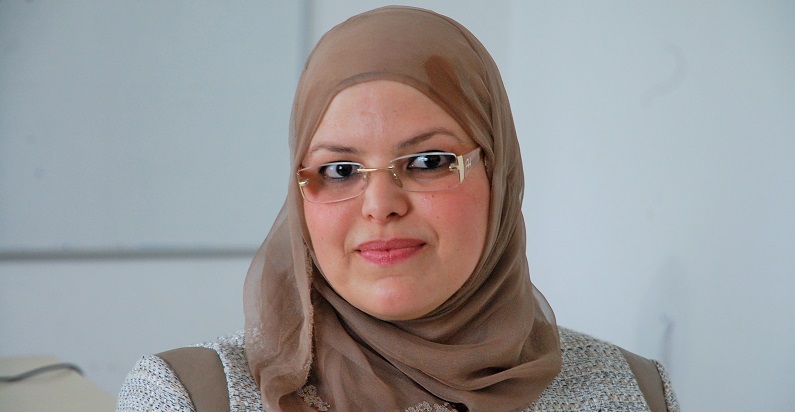-
10 April 2015
Category : Inf first person Opinion
In the first person… She started writing her name
Su hija nunca antes había escrito su nombre. Ahora, al menos, lo intenta. Kouser es una profesora tunecina y tiene una hija con discapacidad intelectual. Juntas han conseguido este logro después de que Kouser recibiese un curso de formación en técnicas de aprendizaje para menores con discapacidad. Una formación desarrollada bajo el marco de un proyecto de cooperación financiado por la UE y gestionado por la FIIAPP.Her daughter had never written her name before. Now, at least, she makes an attempt. Kouser is a Tunisian teacher and has a daughter with an intellectual disability. Together they achieved this milestone after Kouser received a training course on teaching techniques for children with disabilities. Training developed within the framework of a cooperation project financed by the EU and managed by the FIIAPP.

“We’ve seen another communication method which is very important: language with pictogrammes that lets children communicate on their own. Also adaptation activities, for example for materials: notebooks, furniture… It’s the first time I’ve received this type of training, and so it was tremendous. It’s opened up new horizons for me, and now we can offer our children an appropriate work method.
We’ve also talked about the importance of inclusion into mainstream schooling and adaptation of the school curriculum. Before we only worked on integration in schools, that is, on providing a special education class for persons with disabilities in an ordinary school; but that’s not the same as inclusion, that’s segregation. Adaptation of the curriculum is very important for educating children with disabilities, whether physical or mental, because it gives each child a special system for learning.
In my daughter’s case, she didn’t know the Arabic alphabet or the numbers. We had tried various methods, but none had worked. She was in school and was promoted to the next grade level automatically. After the exchange with the experts from the project, I thought of bringing my daughter here because I could see that this was very professional work. We started to work with her, and I discovered that my daughter was happy and that she also wanted to move the letters to spell out her name”.
Kouser is a beneficiary of the project ‘Support for socio-economic integration of persons with disabilities’ in Tunisia. Over its two years of duration, it was managed by the FIIAPP and had a budget of two million euros. Hear other voices from the project on our radio programme ‘Public Cooperation Around the World’ (Radio 5, all news)
The views and opinions expressed in this blog are the sole responsibility of the person who write them.






